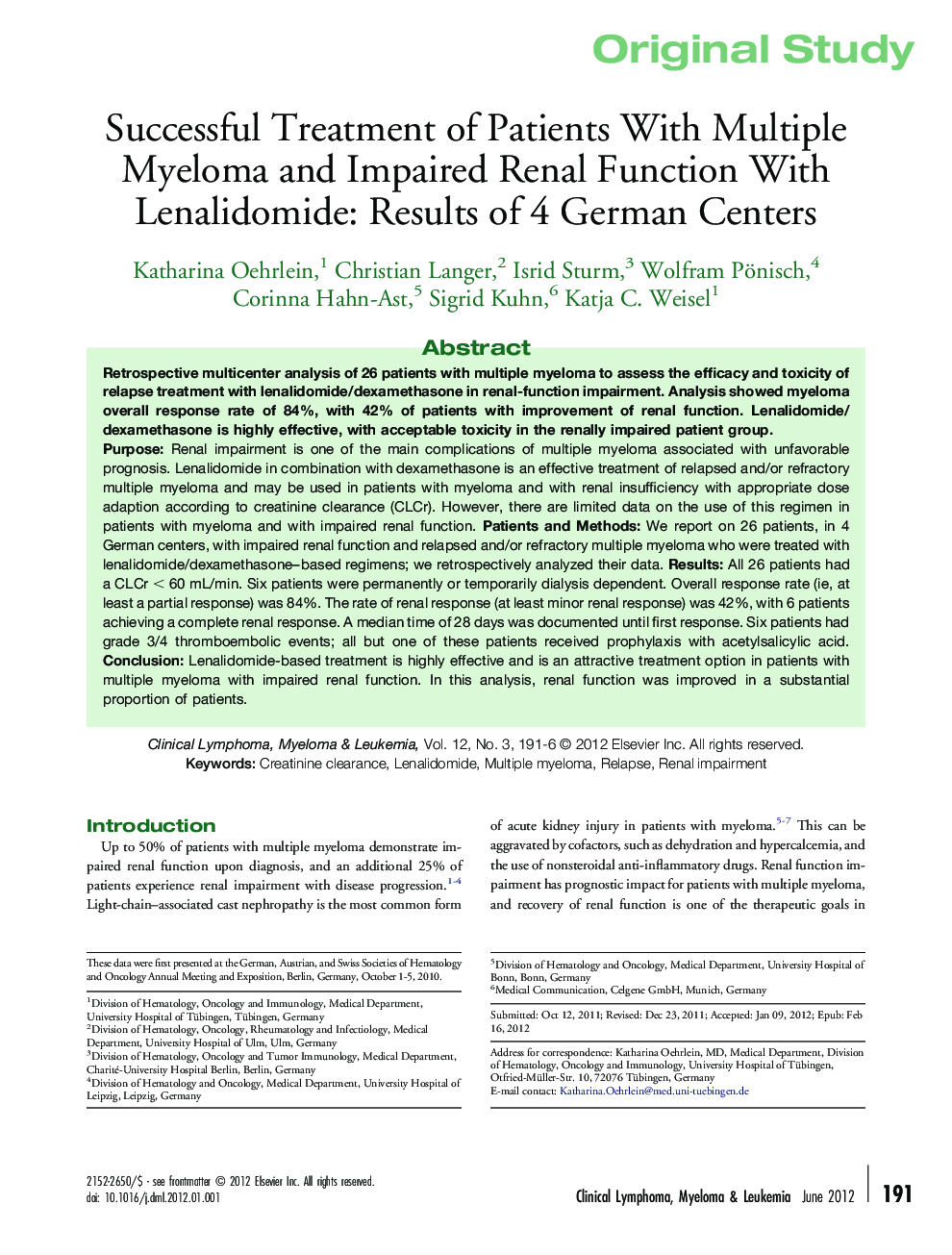| Article ID | Journal | Published Year | Pages | File Type |
|---|---|---|---|---|
| 2754968 | Clinical Lymphoma Myeloma and Leukemia | 2012 | 6 Pages |
PurposeRenal impairment is one of the main complications of multiple myeloma associated with unfavorable prognosis. Lenalidomide in combination with dexamethasone is an effective treatment of relapsed and/or refractory multiple myeloma and may be used in patients with myeloma and with renal insufficiency with appropriate dose adaption according to creatinine clearance (CLCr). However, there are limited data on the use of this regimen in patients with myeloma and with impaired renal function.Patients and MethodsWe report on 26 patients, in 4 German centers, with impaired renal function and relapsed and/or refractory multiple myeloma who were treated with lenalidomide/dexamethasone–based regimens; we retrospectively analyzed their data.ResultsAll 26 patients had a CLCr < 60 mL/min. Six patients were permanently or temporarily dialysis dependent. Overall response rate (ie, at least a partial response) was 84%. The rate of renal response (at least minor renal response) was 42%, with 6 patients achieving a complete renal response. A median time of 28 days was documented until first response. Six patients had grade 3/4 thromboembolic events; all but one of these patients received prophylaxis with acetylsalicylic acid.ConclusionLenalidomide-based treatment is highly effective and is an attractive treatment option in patients with multiple myeloma with impaired renal function. In this analysis, renal function was improved in a substantial proportion of patients.
